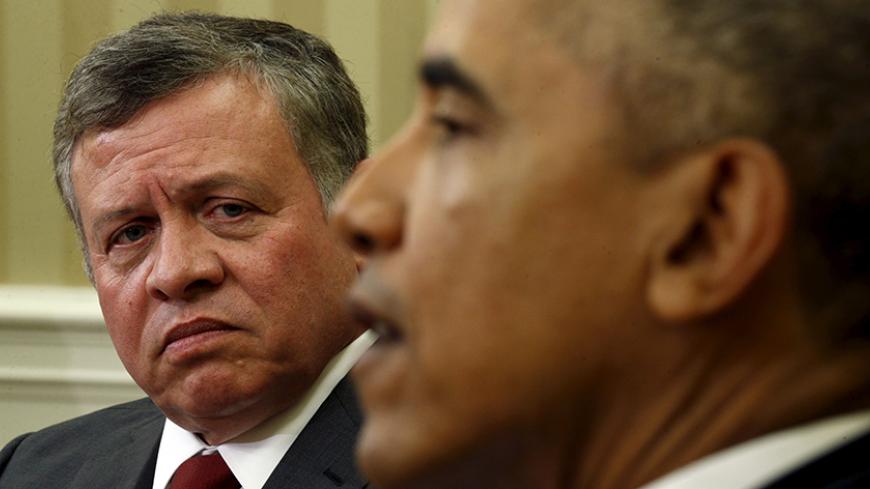AMMAN, Jordan — During a 2014 NATO summit in Wales, US President Barack Obama asked to speak privately with Jordan’s King Abdullah II. As reported in the April issue of The Atlantic, Obama was unhappy about the Hashemite monarch having criticized his Middle East policies to members of Congress, so he asked Abdullah to speak with him directly regarding any future reservations he might have, rather than voicing them to US lawmakers.
Sixteen months later, in January 2016, Abdullah bashed Obama’s war against the Islamic State (IS) while emphasizing Jordan’s challenging geostrategic position in a briefing with members of Congress, according to a leak reported in The Guardian March 25. In what emerged as an embarrassing revelation, Jordan’s king rebuked his most important patron, acknowledged sending special forces to faraway lands despite potentially significant domestic opposition and disclosed Amman’s robust security ties with Israel in the Syrian war.



